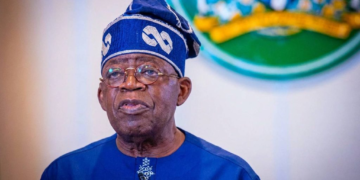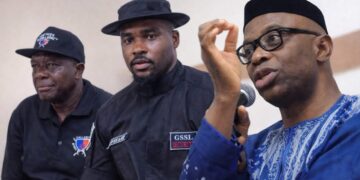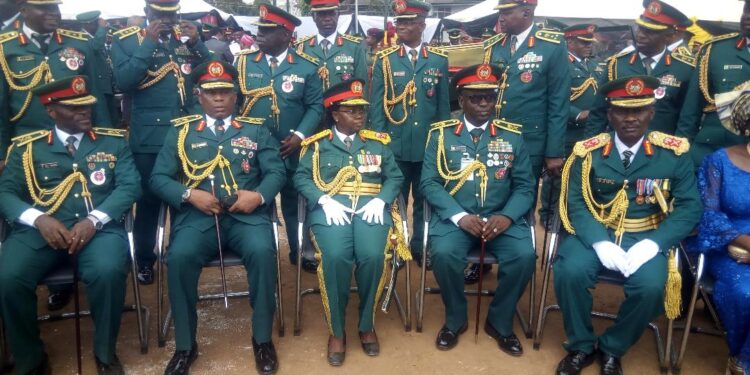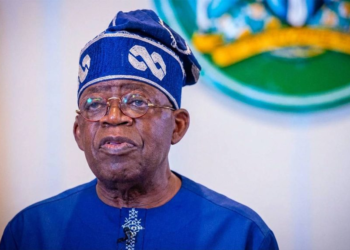Former spokesman for the Nigerian Air Force, Group Captain Sadeeq Shehu (retd.), has expressed concern over the excessive number of Generals in the Nigerian Army, citing difficulties in appointing service chiefs as a result.
During his appearance on Arise TV from Kaduna, Shehu remarked, “The upcoming retirement will include Generals from the Army, Air Force, and Navy. While we have an abundance of Generals and replacements will be found, it is worth noting that it is highly unusual for any military in the world to retire approximately 100 Generals. By my estimate, there are close to 133 Major Generals in the Army, Rear Admirals in the Navy, and Air Vice Marshals in the Air Force who are departing. We must also remember that this is not the first occurrence. When the previous set of service chiefs retired in 2022, around 100 more left.”
Shehu emphasized the financial and experiential loss incurred by retiring such a significant number of trained personnel. He stated, “Considering the funds invested in training these individuals, both through foreign courses and domestic programs, the experience we are forfeiting and the resources we are wasting by letting them go are detrimental to the national economy.”
Addressing the process of appointing service chiefs, Shehu acknowledged the constitutional authority vested in the President and Commander-in-Chief, stating, “According to Section 217 of the constitution, our President has the prerogative to appoint service chiefs, without being bound by seniority. It is entirely within his discretion. However, President Bola Tinubu inherited a pool of approximately 350 Major Generals across the services, making his task of selecting service chiefs extremely challenging. This issue is indicative of a problem that dates back to earlier times. It is unreasonable to have 350 Major Generals for the President to choose from. The services themselves, along with the Ministry of Defence, approved this number.”
Shehu further elaborated on the hierarchical structure of the military and the ideal distribution of ranks, saying, “The military is designed as a pyramid, with each level succeeding the one beneath it. The base of the pyramid should consist of a large number of Second Lieutenants who graduate from the Nigerian Defence Academy in the Navy, Air Force, and Army. As they progress to the rank of full Lieutenant, promotions should be almost automatic, except in the case of fatalities.”
“However, filtering processes should commence upon reaching the Captain rank and continue as officers advance to Major. Towards the upper echelons, such as the rank of General, only a small percentage, ideally two to five percent, should remain. Unfortunately, this is not the case in Nigeria. Based on my research, around 44 percent of those who completed certain courses at the NDA eventually became Major Generals. This is not an effective approach. The root of the problem lies in a well-coordinated and modern military personnel management system,” Shehu explained.
He concluded by highlighting the warnings provided by senior military figures regarding the excessive number of Generals. Shehu stated, “As early as 2012, some of us noticed this trend of promoting too many Generals. There is an overabundance of Generals today. While times have changed since I joined the military in 1984, back then, Brigadiers were scarce. However, the situation is vastly different now. We need to heed the advice of our elders. General Ishola Williams cautioned us as far back as 2020 about the imbalance of too many Generals and insufficient field troops. Ultimately, it is the country that suffers in the long run.”

































